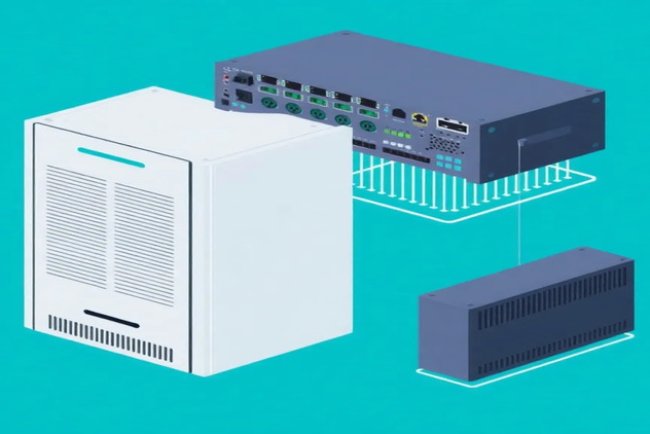The House may soon belong to the GOP Here's what party leaders say they'll do first.
Explore the GOP's strategic plans and priorities as they take control of the House of Representatives.

The House GOP is gearing up for an ambitious legislative agenda following their recent electoral victory, which has granted them control of the House of Representatives. Under the leadership of President-elect Trump, the party is prioritizing key issues such as tax reform and border security. As they consolidate power, House Republican leaders are planning to implement several significant changes aimed at reshaping policy and governance.
Key Legislative Priorities:
-
Tax Reform: The GOP aims to overhaul the current tax system, focusing on reducing rates for individuals and businesses to stimulate economic growth.
-
Border Security: Strengthening border security measures is a top priority, with plans to enhance funding for border enforcement and address immigration policies.
-
Healthcare Reforms: The party intends to revisit healthcare legislation, seeking to repeal and replace the Affordable Care Act with a system that promotes competition and lowers costs.
Leadership and Strategy:
-
Unified Front: House Republican leaders are emphasizing unity within the party to ensure a cohesive approach to their legislative agenda.
-
Engagement with Voters: They plan to actively engage with constituents to communicate their goals and gather support for upcoming initiatives.
Challenges Ahead:
-
Bipartisan Cooperation: While the GOP holds a majority, they will need to navigate potential challenges in gaining bipartisan support for their proposals.
-
Public Opinion: The party must also consider public sentiment on key issues, as they work to implement their agenda effectively. The House GOP is preparing to launch an ambitious legislative agenda following their recent electoral success, which has granted them control of the House of Representatives. Under the leadership of President-elect Trump, the party is focusing on critical issues such as tax reform and border security. As they solidify their power, House Republican leaders are planning to introduce several significant changes aimed at transforming policy and governance.
Key Legislative Priorities:
-
Tax Reform: The GOP plans to revamp the current tax system, concentrating on lowering rates for individuals and businesses to foster economic growth.
-
Border Security: Enhancing border security measures is a primary focus, with intentions to increase funding for border enforcement and reform immigration policies.
-
Healthcare Reforms: The party aims to revisit healthcare legislation, looking to repeal and replace the Affordable Care Act with a system that encourages competition and reduces costs.
Leadership and Strategy:
-
Unified Front: House Republican leaders are stressing the importance of unity within the party to ensure a coordinated approach to their legislative agenda.
-
Engagement with Voters: They intend to actively connect with constituents to communicate their objectives and garner support for upcoming initiatives.
Challenges Ahead:
-
Bipartisan Cooperation: Although the GOP holds a majority, they will face challenges in securing bipartisan support for their proposals.
-
Public Opinion: The party must also take into account public sentiment on key issues as they strive to implement their agenda effectively.
As the GOP prepares to take control of the House, party leaders are outlining their immediate plans and priorities for the upcoming session. With a focus on delivering results, they aim to capitalize on their electoral success and set the tone for the next Congress.
Immediate Actions:
-
**Legislative Agenda - Legislative Agenda: The GOP is set to introduce a comprehensive legislative agenda that addresses pressing national issues, aiming to pass key bills in the early months of their control.
-
Committee Assignments: Leaders are expected to make strategic committee assignments to ensure that their priorities are effectively pushed through the legislative process.
-
Investigative Oversight: The party plans to initiate investigations into various aspects of the previous administration's policies, focusing on accountability and transparency.
Long-term Vision:
-
Economic Growth: The GOP is committed to fostering an environment conducive to economic growth, emphasizing job creation and investment in infrastructure.
-
National Security: Strengthening national security measures will be a cornerstone of their long-term strategy, with a focus on both domestic and international threats.
-
Education Reform: The party is also looking to address education reform, advocating for school choice and increased funding for vocational training programs.
As the GOP prepares to take the reins of the House, their focus on a robust legislative agenda, unity within the party, and engagement with voters will be crucial in shaping their success. The challenges of bipartisan cooperation and public opinion will require careful navigation as they work to implement their vision for the future.
FAQ:
Q1: What are the main priorities of the GOP now that they control the House?
A1: The GOP is focusing on several key priorities, including tax reform, border security, healthcare reforms, and economic growth initiatives. They aim to overhaul the tax system, enhance border enforcement, revisit healthcare legislation, and promote job creation.
Q2: How does the GOP plan to implement their legislative agenda?
A2: The GOP intends to introduce a comprehensive legislative agenda early in their control of the House. They will make strategic committee assignments to push their priorities effectively and plan to initiate various investigations into the previous administration's policies.
Q3: What specific measures are being proposed for tax reform?
A3: The GOP plans to revamp the current tax system by reducing tax rates for individuals and businesses, with the goal of stimulating economic growth and increasing competitiveness.
Q4: What are the GOP's plans regarding border security?
A4: The party aims to enhance border security measures by increasing funding for enforcement and reforming immigration policies to ensure a more secure border.
Q5: How does the GOP plan to address healthcare issues?
A5: The GOP intends to revisit the Affordable Care Act, aiming to repeal and replace it with a system that promotes competition and lowers costs for consumers.
Q6: What challenges might the GOP face in implementing their agenda?
A6: The GOP will need to navigate potential challenges in gaining bipartisan support for their proposals and must also consider public sentiment on key issues as they work to implement their agenda effectively.
Q7: How does the GOP plan to engage with voters?
A7: GOP leaders plan to actively connect with constituents to communicate their objectives and gather support for their initiatives, emphasizing the importance of a unified front within the party.
Q8: What long-term goals does the GOP have beyond their immediate agenda?
A8: Beyond immediate priorities, the GOP is committed to long-term goals such as strengthening national security, promoting education reform, and fostering an environment conducive to sustained economic growth.
Q9: How will the GOP ensure accountability and transparency?
A9: The party plans to initiate investigations into various aspects of the previous administration's policies as part of their commitment to accountability and transparency.
Q10: What impact might these changes have on the American public?
A10: The GOP's proposed changes could significantly impact various aspects of American life, including taxes, healthcare access, job opportunities, and national security, depending on the success of their legislative agenda and public reception
What's Your Reaction?















